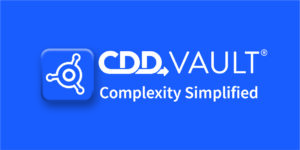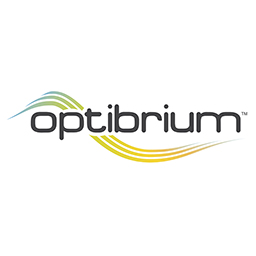 7th Artificial Intelligence in Chemistry Symposium
7th Artificial Intelligence in Chemistry Symposium
Event
7th RSC-CICAG / RSC-BMCS Artificial Intelligence in Chemistry
Dates
Monday-Wednesday, 16th – 18th September 2024
Place
Churchill College, Cambridge
Important links and downloads
X hashtag – #AIChem24
To register for the meeting, click here
To Exhibit or Sponsor the meeting, click here
Synopsis
Artificial Intelligence is experiencing a renaissance in the development of new methods and practical applications to ongoing challenges in Chemistry. Following the successes of five annual “Artificial Intelligence in Chemistry” meetings starting in 2018, we are pleased to announce that the Chemical Information & Computer Applications Group (CICAG) and Biological & Medicinal Chemistry Sector (BMCS) of the Royal Society of Chemistry are once again organising a conference to present the current advances in AI and machine learning in Chemistry. The meeting will be held over two and half days and combine aspects of artificial intelligence and deep machine learning methods to applications in chemistry. The programme will include a mixture of keynote talks, panel discussion, oral presentations, flash presentations, posters and opportunities for open debate, networking and discussion.
This year meeting has changed format to two and half days and will include workshop on first day, please keep checking website for updates.
Workshop on Monday 16th September
One of the key pieces of feedback from the previous meetings was the desire for an introduction to AI/ML for Chemistry. For scientists new to the area the acronyms and terminology can be a significant barrier. For those who are already involved in AI/ML the whole scientific field is expanding so rapidly it is becoming impossible to keep abreast with latest developments and understand the strengths and weaknesses of the various approaches. So, the 2024 meeting will include a half-day workshop prior to the main meeting to provide this introduction. We are delighted to announce that workshop will be led by Andrea Volkamer and Pat Walters.
Who should attend
This meeting will be of interest to scientists of any level of experience from academia and industry
Call for Posters / Abstracts
The abstract submissions are now closed!
Want to become a member?
To join the RSC in order to qualify for discounted registration fees at all RSC, please follow this RSC link.
Bursaries
The RSC-BMCS and RSC-CICAG are offering a small number of bursaries to attend the meeting in person. Applications are open to PhD and post-doctoral applicants studying at academic institutions or non-profit institutions. Preference will be given to members of the RSC-BMCS and RSC-CICAG. Bursary applications are also invited from RSC or EFMC members who are of working age, but currently unemployed, and from those who may have difficulty in funding themselves or whose organisations may have difficulty in funding their attendance. The bursary value for this event is up to £700 and applicants have to fill either an RSC-BMCS or RSC-CICAG application form. The bursary application closing date is 15th July, 2024.
Download the RSC-CICAG bursary application form here
Download the RSC-BMCS bursary application form here
AI in Chem 24 Programme
Monday 16th September| 12.00-13.00 | Registration & Refreshments |
| 13.30-14.30 | Workshop 1 Pat Walters & Andrea Volkamer |
| 14.30-15.00 | Break |
| 15.00-16.00 | Workshop 2 Pat Walters & Andrea Volkamer |
| 16.00-16.30 | Break |
| 16.30-17.30 | Workshop 3 Pat Walters & Andrea Volkamer |
| 17.30-18.00 | Q&A |
| 18.00 | Close |
| 19.00 | BBQ at Churchill |
Tuesday 17th September
| 09.15-10.00 | Registration & Refreshments |
| 10.20-10.30 | Opening Remarks |
| 10.30-11.30 | Keynote John Jumper Google DeepMind |
| 11.30-12.00 | Flash Posters 20 x 1.5 min talks |
| 12.00-13.30 | Lunch, Exhibition, Posters (odd numbers), and Networking |
| 13.30-14.00 | Alexis Molina Nostrum Biosciences |
| 14.00-14.30 | Yael Ziv Oxford |
| 14.30-15.00 | Eva Nittinger AstraZeneca |
| 15.00-15.30 | David Marcus GSK |
| 15.30-16.00 | Refreshments, Exhibition, Posters (even numbers), and Networking |
| 16.00-16.30 | Maria Boulougouri EPFL |
| 16.30-17.00 | Andrea Volkamer Saarland |
| 17.00-18.00 | Pre-Dinner Talk Pat Walters, Relay Therapeutics |
| 18.00 | Close |
| 18.30 | Walk to conference dinner |
| 19.00 | Reception & Conference Dinner at St John's |
Wednesday 18th September
| 08.30-09.30 | Refreshments |
| 09.30-10.00 | Val Gillet Sheffield |
| 10.00-10.30 | Jiayun Pang Greenwich |
| 10.30-11.00 | Refreshments, Exhibition, Posters (even numbers), and Networking |
| 11.00-11.30 | Emma King Smith Cambridge |
| 11.30-12.00 | Priyanka Raghavan MIT |
| 12.00-13.30 | Lunch, Exhibition, Posters (odd numbers), and Networking |
| 13.30-14.00 | Keith Butler UCL |
| 14.00-14.30 | Hannes Kneiding Oslo |
| 14.30-15.00 | Ulrik Friis-Jensen Copenhagen |
| 15.00-15.30 | Refreshments, Exhibition, and Networking |
| 15.30-16.30 | Keynote Heather Kulik MIT |
| 16.30-17.00 | Poster Prizes and Closing Remarks |
| 17.00 | Conference Close |
Keynotes:
John Jumper, Google DeepMind, UK
Heather Kulik, Massachusetts Institute of Technology, USA
Speakers:
Alexis Molina, Nostrum Biodiscovery, Spain
Andrea Volkamer, Saarland University, Germany
David Marcus, GSK, UKEmma King-Smith, University of Cambridge, UK
Eva Nittinger, AstraZeneca, Sweden
Hannes Kneiding, University of Oslo, Norway
Jiayun Pang, University of Greenwich, UK
Keith Butler, UCL, UK
Maria Boulougouri, EPFL, Switzerland
Pat Walters, Relay Therapeutics, USA
Priyanka Raghavan, MIT, USA
Ulrik Friis-Jensen, University of Copenhagen, Denmark
Val Gillet, University of Sheffield
Yael Ziv, University of Oxford, UK
Workshop:
Andrea Volkamer, Saarland University, Germany
Pat Walters, Relay Therapeutics, USA
Registration
The registration is now open, click here to register. The registration deadline is Monday 2nd September, (BST) 2024.
In person registration fees
RSC Member* £340
Non-Member £430
RSC Student ** Member* (Undergraduate and post-graduate) £195
Student** Non-Member (Undergraduate and post-graduate) £250
Online attendance registration fees
RSC Member* £235
Non-Member £282
RSC Student ** Member* (Undergraduate and post-graduate) £125
Student** Non-Member (Undergraduate and post-graduate) £162
* Member is a paid-up member of the RSC
** Student rates apply to undergraduate and post-graduate students only, but not post-doctoral students.
Sponsorship/Exhibition Opportunities
Click here to book exhibition stand or sponsor the meeting.
Exhibition stand package is priced at £1,300 and includes:
– A six-foot trestle table and chair(s);
– Access to electricity and Wi-fi;
– Logo inclusion in pdf delegate handbook and rolling slides;
– Exhibitors promotional page in the pdf delegate handbook;
– Logo included in the communication emails to delegates;
– One exhibitor stand staff with access to the technical sessions and Conference dinner (excluding accommodation)
We are also seeking sponsorship from organisations supporting the low registration fees offered to students. You can support and sponsor this meeting by clicking the booking link above.
Exhibitors
Sponsors
Scientific Organising Committee
Nathan Brown, Healx
Nessa Carson, AstraZeneca
Samantha Hughes, AstraZeneca
Kim Jelfs, Imperial College London
Garrett M. Morris, University of Oxford (Co-Chair)
Pradip Songara, Rothamsted Research (Treasurer)
Chris Swain, Cambridge MedChem Consulting (Co-Chair)
Secretariat Contact
Hg3 Conferences Ltd
+44 (0)1423 529333
E-mail











